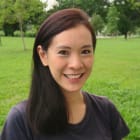This gynaecologist has delivered 10,000 babies and helped with women’s most intimate problems
Dr Han How Chuan has made it his life’s work to help women through childbirth, miscarriage, infertility, menopause and gynaecological cancers. He tells CNA Women what he has learnt about women as an obstetrician and gynaecologist, and how it has enhanced his own marriage, in this instalment of this series about men who champion women’s issues.
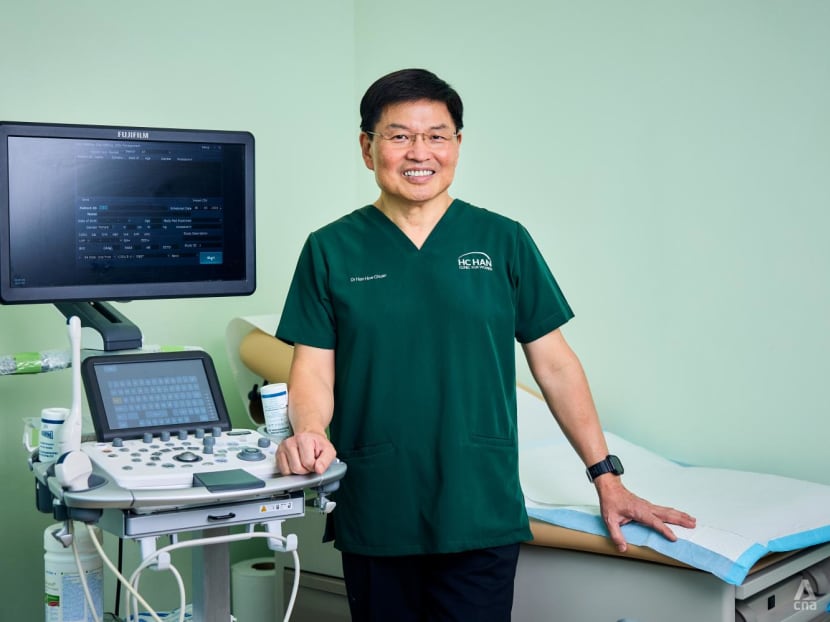
“As a gynaecologist, I understand what women suffer to have children. So I respect my wife and try my best to listen to her,” said Dr Han How Chuan, who has seven children of his own. (Photo: CNA/Alvin Teo)
He has spent 33 years working with women – listening to their most private problems, sharing their happiest moments and supporting them through times of unimaginable loss.
During his long career, he has delivered close to 10,000 babies, and helped women through miscarriages, stillbirths, abortions, infertility, fibroids, cysts, incontinence, menopause and gynaecological cancers.
Meet Dr Han How Chuan, an obstetrician and gynaecologist (O&G) who has dedicated his life’s work to women.
THE BUSINESS OF BIRTHS
Most doctors spend their career treating illnesses. However, a third of Dr Han’s job involves welcoming new life into the world. It is a joyous job, and it was what attracted Dr Han to the field of obstetrics – a specialty that focuses on pregnancy and childbirth.
Women are very special and important. As a gynaecologist, I understand what women suffer to have children.
Dr Han still remembers his first delivery experience as a medical student at the age of 25 or 26 in the mid-1980s. “Most women did not have epidural then so if you pass the labour ward, you would hear them screaming in pain,” he said.
It was an unforgettable delivery for the then-medical student. “It happened so fast that I didn’t really know what to do. When I delivered the baby, I was so happy. But on the other hand, I was so frightened because the baby is so smooth. I was afraid I couldn’t hold the baby properly,” he laughed.
“The worst part is the stitching (of the episiotomy cut made between the vagina and anus to allow the baby to come through more easily). We normally take about five minutes to stitch it up, but the first time I did it, it took more than an hour. There was blood everywhere. I couldn’t see properly to stitch the wound. I also couldn’t hold the needle properly,” he recalled.
Since then, Dr Han has delivered countless babies. Today, he is a well-respected obstetrician and gynaecologist and many of his patients return to him for multiple pregnancies. He has even delivered six babies for one patient.
Despite thousands of deliveries, the feeling of joy at each successful delivery never gets old, and Dr Han does his best to help women overcome significant odds to carry their babies to full term. He has even helped a 51-year-old woman close to menopause deliver a healthy baby.
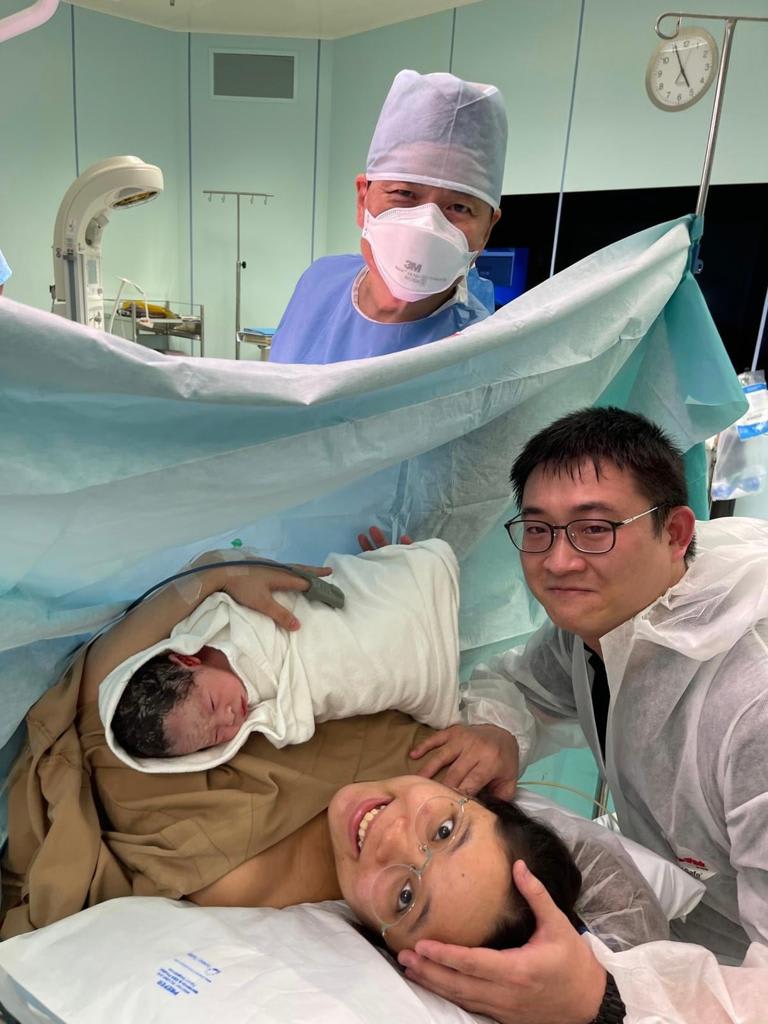
His love for his job also prompts him to go the extra mile in other ways. He once counselled a woman on the verge of an abortion to keep her baby.
“She had only one child and thought she was too old to have another. She was also worried that she could not afford to have a second child. But after counselling, she decided to keep the baby and delivered a girl.
“Since then, she has been so appreciative that every year, during her daughter’s birthday, she will have a gathering with me and the nurse. The girl is 27 years old now,” he said.
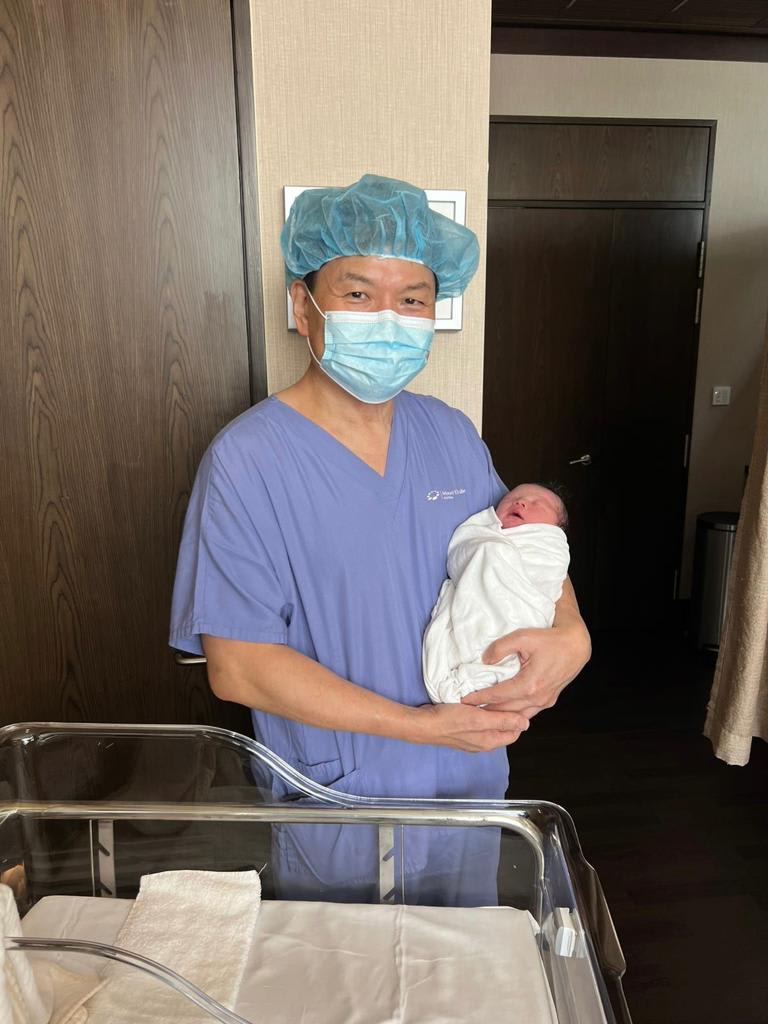
Even though obstetrics is a labour of love, there are heart-breaking moments when patients experience complicated pregnancies and suffer losses.
“I had a patient whose baby was small and not growing, and her water level was low (increasing the risk of stillbirth). I told her to induce labour (to stimulate childbirth) and deliver her baby early, but because it was the seventh month on the lunar calendar, her husband wanted to wait till after the seventh month,” he said.
“I asked her sister and other doctors to talk to the couple but they would not listen. I monitored her baby from the beginning till the last three days of the lunar seventh month. With just two more days to go, the baby had no more heartbeat,” he added.
He however added that in such cases of pregnancy loss, he believes that his role extends beyond that of a doctor and does his best to be a pillar of support and comfort. In this particular case, the patient got pregnant subsequently, and with his help, delivered a healthy baby.
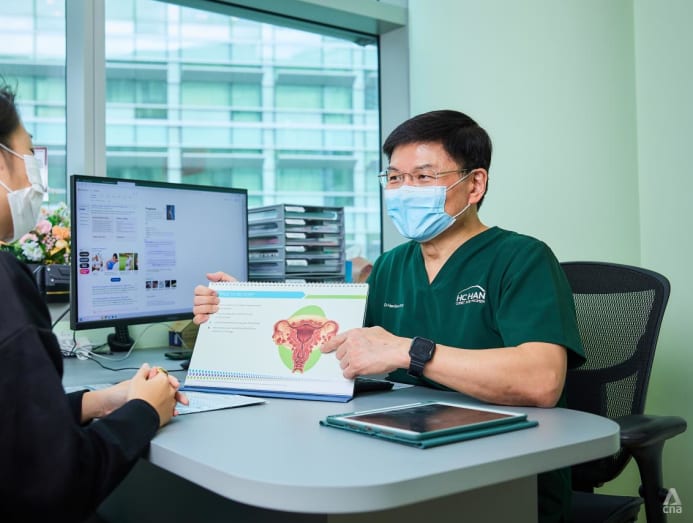
Related:
MAN IN A WOMAN’S WORLD
Beyond the baby business, Dr Han’s work includes the field of gynaecology that involves the treatment of women’s diseases, especially those affecting the reproductive system; as well as urogynaecology, a sub-specialty that treats women’s pelvic floor, which supports the uterus, vagina, bladder and rectum.
As a male doctor treating women, Dr Han does not see any significant gender barriers to the role. “Some women prefer female gynaecologists – but this is only a small percentage. Some also prefer male gynaecologists,” he noted.
In fact, Dr Han believes that it is important to have a good mix of male and female doctors in the specialty because diversity gives patients more options.
As a male gynaecologist, Dr Han sees himself as a strong advocate for women’s health, often urging them to go for regular screening such as pap smear and mammograms, as well as cervical cancer vaccination.
“A lot of women think screening is a waste of money and put it off for financial reasons, especially if they have a family and prioritise their children’s needs. But screening is very important. When cancer is detected at an early stage, treatment can deliver good results,” he said.
Dr Han also plays the role of confidante and counsellor to his patients. Many patients share their marital problems with him and confide in him when contemplating divorce. One woman he accompanied through pregnancy told him her husband is gay.
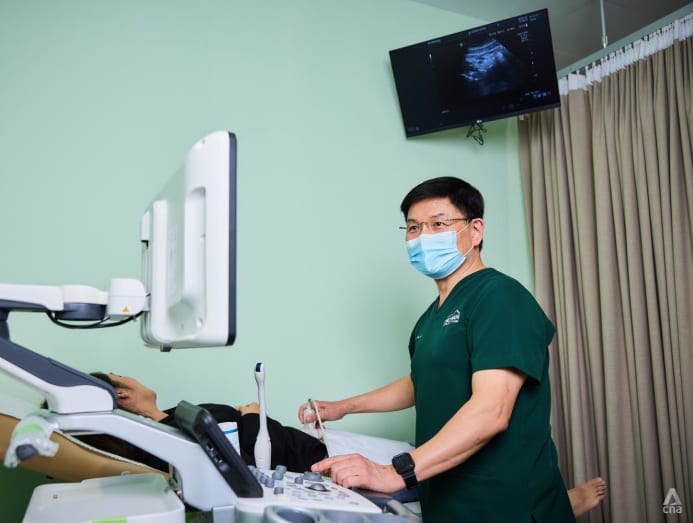
“(When I first became a doctor) I expected to be counselling patients about illnesses and delivering negative news. But I did not expect to provide social and emotional support (on personal issues),” he admitted.
However, Dr Han believes that listening without judgement is a big part of the job. “If you don’t develop trust with patients, they may hide certain things from you and you cannot treat them properly,” he said.
“For a woman to tell you about their menses or about (vaginal) discharges, they must trust you,” he explained. “Sometimes, when women have an infection, they also need to tell you if they have had a one-night stand or a new boyfriend so you know if you should check for sexually transmitted diseases.”
WALKING THE TALK
You could say few men are privy to the personal lives and struggles of women like Dr Han. This has given him a deep respect for women and the process of childbirth.
“Women are very special and important. As a gynaecologist, I understand what women suffer to have children. They go through the changes of pregnancy, morning sickness and complications. And most of them become very good mothers after having a baby, and juggle children, family and work despite how demanding the workplace can be,” he said.
For a woman to tell you about their menses or about (vaginal) discharges, they must trust you.
“My wife and I have seven children and I also see this for myself within my family. So I respect my wife and try my best to listen to her,” he added.
In fact, Dr Han delivered his last three children himself. “The feeling of delivering your own baby is very different. I felt very happy. It has also enhanced my relationship with my wife.”
All these experiences have made Dr Han a better husband. “I do my part to help my wife look after the children. Because I am good in maths, I am in charge of the bills and finances.
“I also look after my children’s education, advise them what to do, drive them to school, and drive my wife to the market to buy food. My wife looks after the kids, talks to them and checks their schoolwork,” he said.
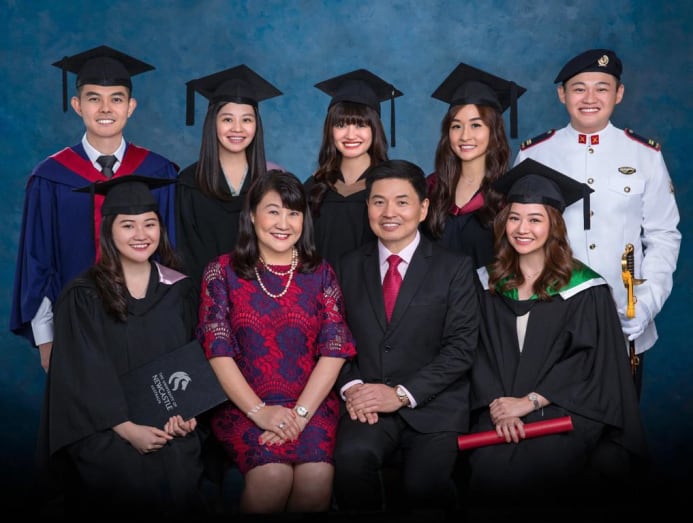

Today, Dr Han’s children are aged between 24 and 34. Even though two of his eldest children are married, the entire family still stays together under one roof and enjoys Sunday dinners together.
A dedicated family man, Dr Han encourages others, including his own children to prioritise family planning.
“People are getting married later than before, and having their first baby later too. However, some women go through menopause early. Some ladies are close to menopause at the age of 40 and have very little ovarian reserve left. I have even seen women in their 20s going through menopause,” he stressed.
“I believe in the importance of family so I tell my children to start a family early. Don’t let career delay family planning because you may not be able to make up for the delay. I also advise my children to be responsible parents and embrace the journey as it comes,” he said.
Read more Man in a Woman's World stories:
CNA Women is a section on CNA Lifestyle that seeks to inform, empower and inspire the modern woman. If you have women-related news, issues and ideas to share with us, email CNAWomen [at] mediacorp.com.sg (CNAWomen[at]mediacorp[dot]com[dot]sg).


